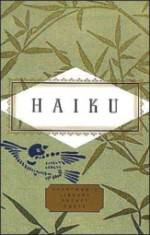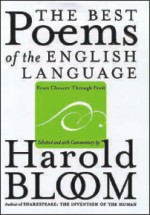|
Books
World Poetry Anthologies
 Haiku Haiku
Peter Washington (Editor)
Knopf Publishing Group, November 2003
Simple yet capable of great complexity, the haiku is a tightly structured verse form that has a remarkable power to distill the essence of a moment keenly perceived. This anthology brings together hundreds of haiku by the Japanese masters -- Basho, Issa, Buson, Shiki -- with superb examples from nineteenth and twentieth-century writers. The pioneering translator R. H. Blyth believed that the spirit of haiku is present in all great poetry; inspired by him, the editor of this volume has included lines from such poets as Wordsworth, Keats, Tennyson, Thoreau, and Hopkins, presented here in haiku form. Following them are haiku and haiku-influenced poems of the twentieth century -- from Ezra Pound's "In a Station of the Metro" to William Carlos Williams's "Prelude to Winter," and from the irreverence of Jack Kerouac to the lyricism of Langston Hughes. The result is a collection as compact, dynamic, and scintillating as the form itself.
 The Best Poems of the English Language The Best Poems of the English Language
Harold Bloom (Editor)
HarperCollins Publishers; March 2004
The Best Poems of the English Language is a comprehensive anthology that offers the reader possession of six centuries of great British and American poetry. The vast scope of this anthology begins with Chaucer and ends with poets whose births predate 1900. Harold Bloom has culled his selection according to his three absolute criteria: aesthetic splendor, intellectual power, and wisdom. Featured in this volume is a substantial and significant introductory essay called "The Art of Reading Poetry." This essay presents Bloom's critical reflections on more than a half century devoted to reading, teaching, and writing about the literary achievement he loves best, and conveys his passionate concern for how a poem should be interpreted and appreciated. Throughout this anthology, Bloom includes extensive introductions to each poet and to many of the individual poems. In such commentaries, Bloom guides the reader through what is most relevant for a true understanding of the more than one hundred poets selected.
 Mountain Home Mountain Home
David Hinton (Editor)
New Directions Publishing Corporation; May 2005
The earliest and most extensive literary engagement with wilderness in human history, Mountain Home is vital poetry that feels utterly contemporary. Mountain Home collects poems form 5th through 13th century China and includes the poets Li Po, Po Chü-I and Tu Fu. The "rivers-and-mountains" tradition covers a remarkable range of topics: comic domestic scenes, social protest, travel, sage recluses, and mountain landscapes shaped into forms of enlightenment. And within this range, the poems articulate the experience of living as an organic part of the natural world and its processes. In an age of global ecological disruption and mass extinction, this tradition grows more urgently important every day. Mountain Home offers poems that will charm and inform not just readers of poetry, but also the large community of readers who are interested in environmental awareness . Compiled by: Sanyat Sattar
Copyright
(R) thedailystar.net 2005 |
